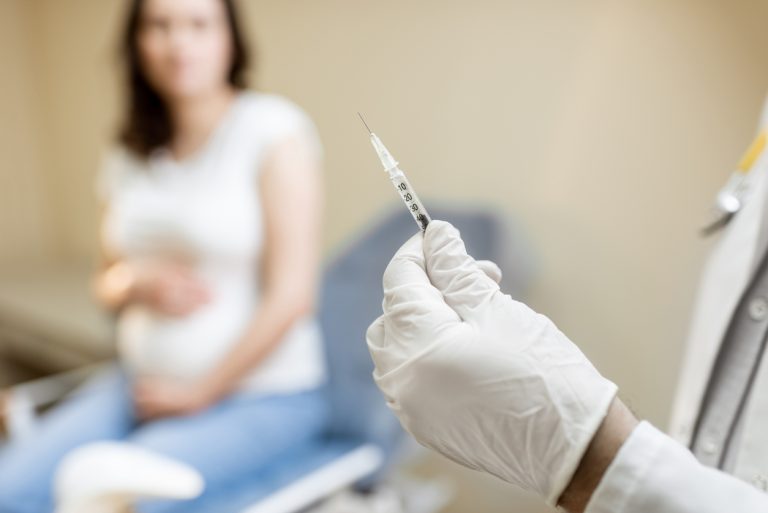Story Highlights
- The World Health Organization issued a Jan. 26, 2021 statement recommending that pregnant women should not be vaccinated with Moderna’s COVID-19 vaccine, approved for use under emergency authorization, citing a lack of data in pregnancy.
- Previously, most countries were in agreement with that opinion, but Israel is now recommending that pregnant women should be vaccinated, citing increasing infection rates and a number of young pregnant women recently admitted to hospitals with serious COVID-19 complications.
- Governments in different countries have adopted different recommendations when it comes to administering experimental COVID-19 vaccines to pregnant women, with the U.S. Centers for Disease Control leaving the choice up to the woman in consultation with her health care provider.
The World Health Organization (WHO) has officially come out against administering Moderna’s experimental COVID-19 vaccine to pregnant women, citing a lack of data.1 Quoting their Jan. 26, 2021 status report on use of Moderna’s experimental mRNA-1273 vaccine, “While pregnancy puts women at a higher risk of severe COVID-19, the use of this vaccine in pregnant women is currently not recommended, unless they are at risk of high exposure.”2
The WHO report adds a caveat saying that pregnant women at high risk of exposure such as health care workers may receive the vaccine. Breastfeeding women in groups recommended for vaccination (again, such as health care workers) may be vaccinated and do not need to discontinue breastfeeding after vaccination.
Israeli Health Ministry Approves Giving Experimental COVID-19 Vaccine to Pregnant Women
Just a few days before the WHO report was issued, Israel’s Health Ministry approved the administration of Pfizer ‘s experimental BNT162b2 COVID-19 vaccine to pregnant women, citing a “higher incidence of serious COVID-19 in pregnant women who become infected with coronavirus.”3 Although Pfizer has not recommended use of the vaccine during pregnancy because of a lack of clinical trial safety data in pregnant women, the company noted that 23 pregnant women—who did not know they were pregnant at the time—were vaccinated during clinical trials and, as far as they know, had a normal pregnancy and birth outcome.4 5
Rationalizing the decision based on an overall increase in rates of infection, particularly among younger patients, and a rash of young pregnant COVID-19 patients admitted to hospitals with COVID-19 complications, Nachman Ash, MD, national coordinator for the coronavirus pandemic response in Israel, said, “Today we are recommending that pregnant women, mainly those with high morbidity risk factors, get the vaccine. We have put them on the priority list.”6
Although Ash acknowledged the lack of research safety data, the agency’s assessment of “biologic logic” saw no risk to vaccinating this population. A spokesperson for Pfizer said use of its vaccine, developed in conjunction with German partner BioNTech, in pregnancy was “a health regulatory organization’s decision.”7
Professor Gili Regev-Yochay, MD, head of the infectious diseases unit at Israel’s Sheba Medical Center near Tel Aviv said, “In recent days there have been severe cases involving pregnant women. At least at the theoretical level, the vaccine is much less risky than other vaccines that we give pregnant women, whether for the flu or whooping cough.”8
Other Countries Also Reconsider Recommendations for Vaccinating Pregnant Women
Israel is not alone in reevaluating its stance on using the experimental vaccines in pregnant women. At the end of 2020, most countries were united in recommending against vaccination in women who were pregnant, soon to be pregnant or breastfeeding. Now, in part due to fears related to what is being termed as “highly transmissible variants of the virus,” some health agencies are changing their recommendations.
Citing a “lack of cause for concern,” Great Britain has changed its position on advising against the use the experimental Moderna and the Pfizer/BioNtech COVID-19 vaccines and now recommends that pregnant women talk with their own doctor to discuss the risks versus benefits on a case-by-case basis.9
Dr. Marian Knight, professor of maternal and child population health at Great Britain’s Oxford University, has commented that “comparable vaccines that have been around longer do not carry safety concerns for pregnant women, so the benefits increasingly outweigh the risks.”10 No mRNA vaccines have been officially licensed for use in human beings by any government yet, and it is unclear which “comparable vaccines” Knight is referring to that “do not carry safety concerns for pregnant women.”
As of Jan. 22, India’s Ministry of Health is still prohibiting pregnant women from receiving the COVID-19 vaccines currently available under Emergency Use Authorization (EUA). Similarly, Russia does not currently allow vaccination of pregnant women, though testing of COVID-19 vaccine in pregnant women and children is scheduled to begin in spring of 2021. China has not specified a stand on use of COVID-19 vaccines in pregnancy, but one of its experimental COVID-19 vaccines will soon be tested in a population of pregnant women in Brazil.
In the U.S., the decision is currently being left to the individual by the U.S. Centers for Disease Control and Prevention (CDC).11 Guidelines from the CDC’s Advisory Committee on Immunization Practices (ACIP) state that, “People who are pregnant and part of a group recommended to receive the COVID-19 vaccine may choose to be vaccinated.”12
Some of the ACIP recommendations for pregnant women considering use of COVID-19 vaccines include discussing issues with a personal healthcare provider, including evaluating the mother’s specific risk of exposure to the SARS-CoV-2 virus that can cause COVID-19; the risks of infection to both the mother and fetus; and what is currently known about the vaccines, including the lack of clinical trial safety data for pregnant women.
Whether a pregnant woman chooses to get a COVID-19 shot or not, ACIP recommends continuing with other self-protection measures, such as masks; keeping at least six feet of distance from others; avoiding crowds; thorough and frequent hand washing; quarantine guidelines following exposure to COVID-19 and adhering to applicable workplace protection guidelines.
Click here to view References:
1 Sparks H. Moderna COVID-19 Vaccine Should Not Be Used On Pregnant Women: WHO. New York Post Jan. 26, 2021.
2 World Health Organization. The Moderna COVID-19 (Mrna-1273) Vaccine: What You Need To Know. Jan, 26, 2021.
3 Jaffe-Hoffman M. Health Funds To Begin Vaccinating Pregnant Women On Wednesday. The Jerusalem Post Jan. 19, 2021.
4 Ibid.
5 The Mrna COVID-19 Vaccine And Pregnancy: What You Need To Know If You’re Pregnant, Trying To Get Pregnant, Or Breastfeeding. U Chicago Medicine Jan. 11, 2021.
6 Williams D. Israel Includes Pregnant Women On COVID-19 Vaccines Priority List. Reuters Jan. 20, 2021.
7 Reuters. Coronavirus: Israel Includes Pregnant Women On COVID-19 Vaccines Priority List. Jan. 20, 2021.
8 Efrati I. Israel Recommends Coronavirus Vaccine for Pregnant Women. Haaretz Jan. 20, 2021.
9 Berger M. Israel Recommends Coronavirus Vaccine For Pregnant Women, Marking A Shift As Some Countries Reassess Risk. The Washington Post Jan. 22, 2021.
10 Ibid.
11 U.S. Centers for Disease Control and Prevention. Vaccination Considerations for People who are Pregnant or Breastfeeding. Jan 7, 2021.
12 CDC. Vaccination Considerations for People who are Pregnant or Breastfeeding. Jan. 6, 2021.













One Response
Gee, what could go wrong? I think the evil ones are afraid of a lot of women miscarrying or going into preterm labor after the shot, that would put the kibosh on it I think for a lot of people.